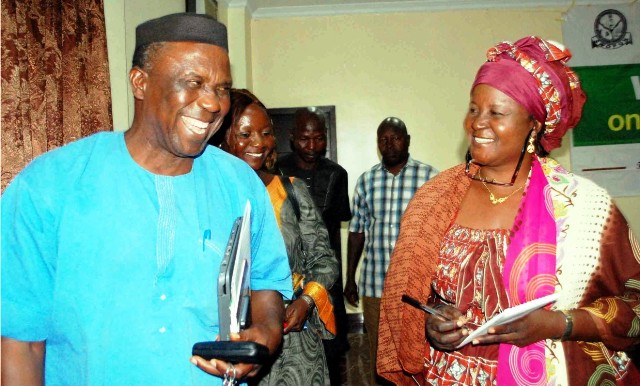Business
DSS Arrests Ifeanyi Ubah Over N11bn Petrol Scam

The Chairman of Capital Oil and Gas Limited, Ifeanyi Ubah has been arrested by the Department of State Services. (DSS).
The agency revealed the arrest last Saturday in a statement by spokesman, Tony Opuiyo.
Opuiyo said Ubah was arrested last Friday in connection with the suspected theft of petrol kept by the Nigerian National Petroleum Corporation, (NNPC), in his tank farm in Lagos. The product was valued at over N11 billion.
The agency said Ubah’s action amounted to economic sabotage, with “capacity to negatively impact on national economy”.
Opuiyo gave additional reasons for Ubah’s arrest. He said he has further engaged in other activities inimical to national security and public order.
“In furtherance of his gimmicks to undermine the government and people of Nigeria, he has incited members of the Petroleum Tanker Drivers (PTD), a critical player in the downstream sub-sector of the Petroleum Industry, to refuse/stop the lifting of products.
“This is part of his plans to curry their sentiments and cause them to embark on strike and also stage protests in his favour with the ulterior motive of arm-twisting the NNPC to abandon the cause of recovering the stolen products. The implications of this on law and order is, in fact, a common knowledge. It is consequent upon this that the Service arrested and will prosecute him forthwith.
“ The public is hereby reassured that the Service will collaborate with appropriate agencies to ensure that the mischievous activities of any person or group(s) to engage in illegal activities will not affect the effective distribution of products across the country. It will also support such agencies to bring to book individuals or companies involved in any criminal act that undermines the nation’s economy”.
The NNPC had on March 17 revealed that about 100 million litres stored at the Capital Oil & Gas depot and over 30 million litres in MRS Limited depot, all in Apapa area of Lagos, were not found when needed.
Henry Ikem-Obih, who is the COO for (Downstream) in NNPC had said the infraction by the two companies was a clear violation of existing contract which prohibited the firms from tampering with the volumes in their custody without express permission of the corporation.
He said the companies were called to explain and given two options to either return the full volume of what was stored in their depots litre-for-litre or pay the full value of the products taken without approval.
He had also mentioned that NNPC alerted the Directorate of State Service (DSS), the Economic Financial Crime Commission (EFCC) and relevant committees of National Assembly with oversight function on the corporation’s downstream operation to help recover the assets.
The MRS paid for the 30 million litres that vanished in its own depot. But Capital Oil and Gas insisted on reconciling its accounts with the NNPC.
Ubah described the allegation of theft against his company as mischievous and misleading. He said the NNPC also failed to tell the public that it also owed Capital Oil billions of Naira from their mutual business transactions.
“It is normal for parties in businesses to owe each other in business relationships and that if reconciliation is carried out with the NNPC, the firm will find out that there may be very little or nothing for Capital Oil to pay the corporation.
A fall-out of the missing petrol was the sack in April by the NNPC management of Mrs. Esther Nnamdi-Ogbue, Managing Director, NNPC Retail Ltd; Mr. Alpha P. Mamza, Executive Director, Operations, NNPC Retail Ltd; and Mr. Oluwa Kayode Erinoso, Manager, Distribution, NNPC Retail Ltd.
The organisation then immediately appointed Mr. Adeyemi Adetunji, as the new Managing Director of NNPC Retail Ltd; Engr. Lawal Bello, Executive Director, Operations, NNPC Retail Ltd; Mrs. Affiong Akpasubi, Executive Director, Services, NNPC Retail Ltd; and Mr. Agwandas A. Andrawus, Manager, Distribution, NNPC Retail Ltd.
Business
Ban On Satchet Alcoholic Drinks: FG To Loss N2trillion, says FOBTOB

Business
Estate Developer Harps On Real Estate investment

Business
FG Reaffirms Nigeria-First Policy To Boost Local Industry, Expand Non-oil Exports




